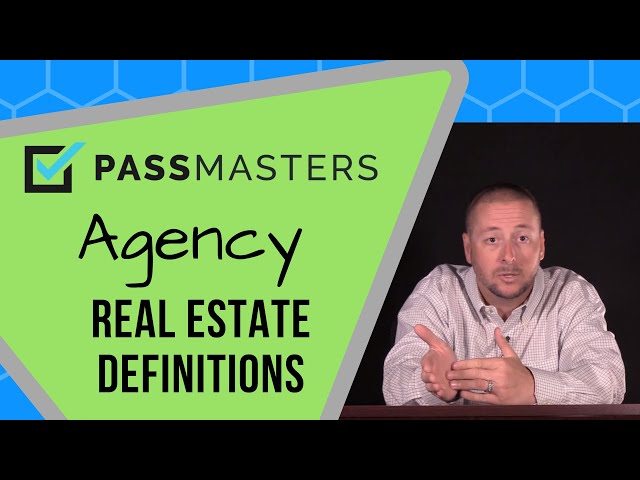
To create a personalized retirement plan, a retirement advisor analyzes the client’s financial situation, income and debts. This plan will guide the client throughout retirement. The advisor will also recommend a variety of products for retirement planning. When working with an advisor, the client should expect to pay a fee for this service.
Qualifications for a retirement advisor
Being a qualified retirement advisor means being able to manage retirement money effectively. Therefore, it is crucial to be knowledgeable in the fields taxation, planning, and economics. These credentials will help you build your credibility and make you a valuable asset to clients.
A bachelor's degree is required for those who want to be a retirement advisor. A degree in finance, business, or a related field is ideal. However, experience is still a great teacher. Many advisors learn their craft through real-world experience. On-the–job training can last for up to a full year for new advisors. This training helps them to learn their duties and establish a network. They must also complete certification programs that require work experience and additional education.

Cost of a retirement adviser
Although every person is different in cost, there are some common guidelines that you can use to help you choose the right advisor. The fee for a retirement advisor can range from $700 to $3500. However, fees are not always linked to the investment value. Before signing any documents, it is important you get the fee in writing. You should also inquire about whether follow up meetings are available.
Some advisors work on a fee-only model and don't charge on assets managed. Others charge an annual or monthly flat fee. The initial fee for fee-only advisors can be as much as $1,000. While the initial fee may be more due to the work involved in creating the advisor, it should still be affordable for subsequent meetings.
Conflicts of interests when working with a retirement advisor
It can be risky to work with a retired advisor. Financial advisors should act in your best interest. However, conflicts of interest can happen when they receive back-door payments or hidden fees. They could direct you to low-return, high-cost investments that offer hidden fees that favor Wall Street firms. Clients lose approximately one percentage point annually in their investments as a result.
Conflicts of interests can result from relationships with other professionals or organizations. According to regulatory guidelines, advisors must disclose their business affiliations as well as how they manage conflicts. Conflicts of interest are still allowed, but not prohibited by these guidelines. Any financial relationships that a retirement advisor has with other people should be disclosed.

Time to hire a retirement advisor
It may be time for a financial advisor if you are just starting out your career or looking to plan your retirement. A financial advisor is able to help you plan your retirement plans and avoid financial hardship later. The advisor should have the appropriate experience and expertise to provide sound advice. They can also help you select the right insurance policies and strategies that will minimize your tax liabilities.
Interviewing many advisors can help you find the right one. You may want to choose one who is experienced in working with clients like you, including those of color or LGBTQ. Also, you can ask about their fees. Do they charge per hour, retainer, percentage, etc. Make sure you have a written contract with your financial advisor before hiring them.
FAQ
Are consulting incomes subject to tax?
Yes, tax will be payable on any consultancy profits. This amount will depend on how much you earn each year.
If you're self employed, you can deduct expenses beyond your salary.
However, you can't deduct interest payments for loans, vehicle depreciation or the cost to purchase equipment.
You can only claim back 25% of your expenses if you earn less than PS10,000 a year.
You might be taxed even if you make more than the threshold depending on whether your income is contractor or employee.
Employees are generally taxed through PAYE (pay as you earn) and contractors through VAT.
What's the difference between an advisor and a consultant?
An advisor gives information on a topic. A consultant is able to provide solutions.
Consultants work directly for clients to help achieve their goals. The advisor provides indirect advice through books, magazines lectures, seminars, and the like.
Are you a consultant?
Consulting is not only an entry-level profession for those looking to make fast money, but it's also an excellent way to acquire valuable skills that you can apply throughout your career.
Consulting offers many opportunities in project management as well as business development, strategy and training. You could find yourself working with small start-ups and large international corporations.
You can develop your skills and gain experience in a variety of industries by consulting. This could include learning to manage teams and write proposals, manage finances, analyze data, create presentations and conduct market research.
How much should you charge to be a consultant?
It depends on what you are offering. If you are offering services for free, it is not worth charging anything. You must charge for services or products if you want to sell them.
If you're providing low-quality service, you don’t have anything to offer. Why should anyone pay for your services?
If you are providing high-quality services, then you could ask for a higher price because people recognize the value you provide. Customers who buy multiple services from you may qualify for discounts.
What are the benefits of being a consultant
As a consultant, you can usually choose when you work and what you work on.
This allows you the freedom to work wherever you like, whenever you want.
It also means you can easily change your mind without worrying about losing money.
Finally, your income can be controlled and you can set your own hours.
What can I expect of my consultant?
After you have selected your consultant, expect to hear from them within a few business days. They will typically ask for information about the company, such as its mission, goals. products and services. budget. Then, they'll send over a proposal outlining the scope of work, estimated time frame, fees, deliverables, milestones, etc.
If everything is in order, then the parties will enter into a written contract. The terms of the contract will depend on the type of relationship between the two parties (e.g., employer-employee, employer-independent contractor).
If all goes well, the consultant will start working immediately. The consultant will have access your internal documents and resources. Additionally, you'll have access their skills and knowledge.
Don't assume that someone who is a consultant knows everything. It takes effort and practice to become an expert in whatever field you consult. Do not expect your consultant to be an expert in every aspect of your business.
Statistics
- According to statistics from the ONS, the UK has around 300,000 consultants, of which around 63,000 professionals work as management consultants. (consultancy.uk)
- 67% of consultants start their consulting businesses after quitting their jobs, while 33% start while they're still at their jobs. (consultingsuccess.com)
- Over 62% of consultants were dissatisfied with their former jobs before starting their consulting business. (consultingsuccess.com)
- On average, your program increases the sales team's performance by 33%. (consultingsuccess.com)
- So, if you help your clients increase their sales by 33%, then use a word like “revolution” instead of “increase.” (consultingsuccess.com)
External Links
How To
How can you find the best consultants?
When searching for a consultant, the first thing you should do is ask yourself what your expectations are. Before you begin looking for a consultant, it is important to know what your expectations are. You should make a list of all the things you need from a consultant. This could include: professional expertise and technical skills, project management capabilities, communication skills, availability, etc. Once you've listed out these requirements, then you may want to consider asking some friends or colleagues who they would recommend. Ask them about their experiences with consultants and compare their recommendations to yours. Try searching online for recommendations if you don’t have any. There are many websites that allow users to leave feedback about their previous work experiences, such as LinkedIn and Facebook, Angie's List or Indeed. Look at the ratings and comments left by others and use this data as a starting point for finding potential candidates. Finally, once you've got a shortlist of potential candidates, make sure to contact them directly and arrange an interview. You should discuss your requirements with the candidates and ask them how they can help. It doesn't matter if they were recommended to your company; all that matters is that they are able to understand your business goals and show how they can help.